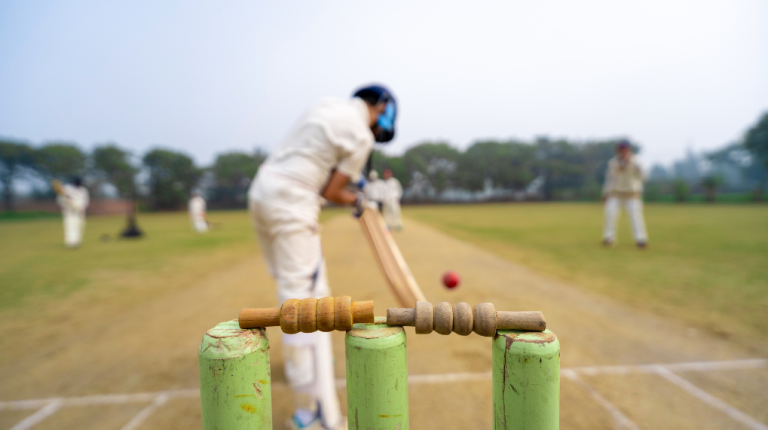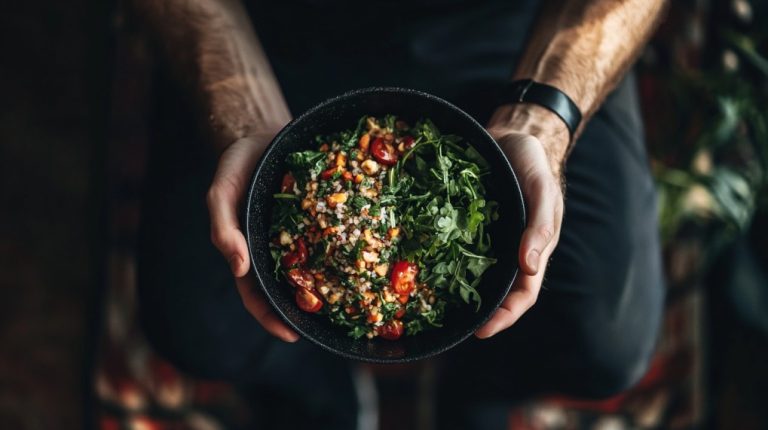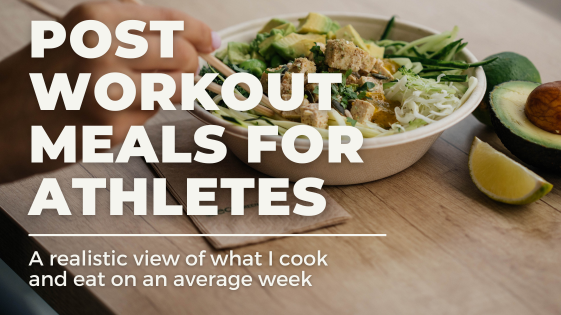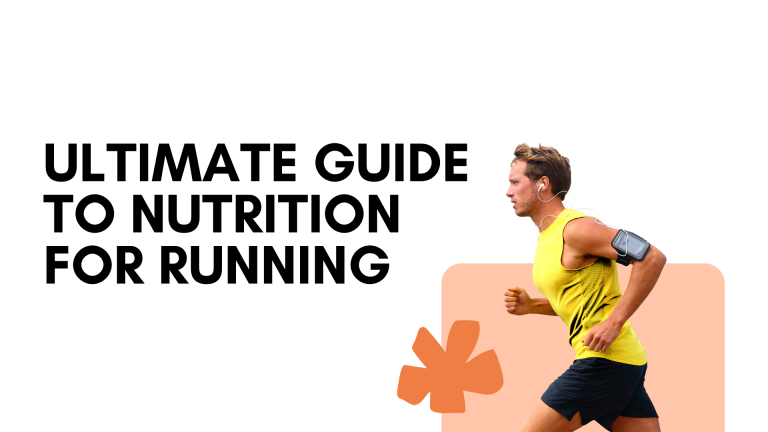When it comes to personal fitness and sports performance, it is not only vital to exercise the body but to feed it as well for muscles to recover. Proper nutrition comes in after exercising, particularly where the exercises have been intense or of a long duration, to help muscles rebuild their strength. Recovery nutrition is simply the process of feeding your body with the required nutrients to reduce muscle stiffness, improve future performance, and avoid injuries. In this article, the following information will be discussed about how nutritional adjustments can enhance muscle recuperation and bodily performance.
What is Muscle Recovery?
Muscle recovery can be defined as the time it takes for muscles to regenerate the microdamage they undergo during physical activities. This repair process is essential in the development of muscle strength and its capacity to endure more pressure. When exercising, especially when lifting weights or doing intensive cardio, the muscles are strained and undergo some micro-injury. Subsequently, the body starts the process of repair to build up the muscles and make them even stronger. Muscle recovery is as much about protection from overtraining as it is about the muscles’ ability to change in response to new stimuli, which is critical for improvement in any training program.
Recovery of muscles entails several functions. As soon as one exercise, glycogen, the stored glucose, begins to replenish in the muscles for use as fuel. Muscle fiber construction, or protein synthesis, also increases. This is why dietitians and nutritionists recommend eating nutrition, especially the consumption of proper nutrients, which is essential during this period—your body requires fuel to rebuild itself.
How does Nutrition Impact Muscle Recovery?
Fat loss is largely determined by the quality of the nutrients consumed and how these nutrients affect the rate of metabolism and recovery from exercise. Proper nutrients help one have less inflammation, more muscular tissue repair, and more energy. For instance, proteins contain the amino acids needed to reconstruct muscle fibre, and carbohydrates provide glycogen. Moreover, antioxidants like vitamin C and minerals like magnesium help prevent inflammation and metabolism, which is crucial to recovery.
When nutrients are not taken in adequate quantities, muscle repair is slower, muscle stiffness is prolonged, and injury is more likely. Adequate nutrition enhances the body’s healing process and helps the individual get back into training at optimal fitness levels faster.
Benefits of Proper Nutrition for Muscle Recovery
Proper nutrition plays an important role in muscle recovery and in reducing the recovery time. A sports nutritionist can curate a proper nutrition plan for your body. With the nutrition your body wants to recover, Here are the benefits of proper nutrition for muscle recovery
Improved Muscle Repair
Nutrition is all about muscle repair and building up muscles since muscles are made of tissues that require nutrition. Protein is especially important in muscle synthesis—the process of muscle regrowth and gaining mass after training. When you eat good proteins, the body splits them into amino acids and uses them to rebuild the small rips in muscle fibers. Research has shown that the anabolic rate of muscle protein synthesis is enhanced when protein is taken after exercising.
Consuming a wide range of proteins, such as lean meats, fish, eggs, dairy products, and plant proteins like lentils and quinoa, helps obtain all the essential amino acids needed for muscle recovery. Protein also has to be consumed within 30-60 minutes after exercise to gain recovery advantages.
Reduced Muscle Soreness
Aches and pains that occur 24 to 72 hours after exercising are called delayed-onset muscle soreness (DOMS). DOMS occurs due to muscle protein breakdown and subsequent inflammation and is most common 24 to 72 hours post-exercise. Even though DOMS is a common occurrence after training, proper nutrition can reduce the severity of the soreness.
Muscle inflammation and soreness are well addressed by anti-inflammatory foods like omega-3 fatty acids that are found in fish, flax seeds, and walnuts. Also, vitamins C and E in fruits and vegetables help fight the effects of oxidative stress brought on by vigorous activity and help in the recovery process. With anti-inflammatory foods, besides helping to relieve the painful feeling, you can also shorten the time it takes for the muscles to recover after exercise.
Key Nutrients for Muscle Recovery
Given below are some of the key nutrients that promote sports performance and muscle recovery:
Protein Sources
Protein is probably the most critical macronutrient that is responsible for muscle repair and building. However, not all protein sources are the same. Protein foods of animal origin like chicken, turkey, fish, eggs, and dairy products are rich in quality proteins containing all the amino acids required by muscles in the body. Tofu, tempeh, lentils, quinoa, and other plant-based products are good protein sources and can help in muscle recuperation just as much as animal proteins.
However, there are two more factors to consider regarding the source of proteins, and that is the timing of proteins. Protein consumption should be spread throughout the day and not taken all at once to ensure that there is a constant supply of amino acids in muscle tissue repair. The recommended daily protein intake is 0.8-1 gram per pound of body weight; try to get 20-30 grams of protein per meal, especially post-workout.
Carbohydrates for Recovery
It is good to have protein, but carbohydrates are also very important for muscles to get back in shape. During exercise, especially activities that require endurance, the glycogen deposits in muscles, which are the body’s main source of energy, get used up. Drinking these fluids is important so that the stores are replenished for the next training or exercise session.
Post-workout meals should consist of complex carbohydrates such as whole grains, sweet potatoes, and brown rice, which will provide a slow and steady energy boost. Fruits are simple carbohydrates that will replenish glycogen in the muscles right after the exercise is completed. Proteins and carbohydrates in post-workout meals also mean muscle tissues are being repaired and glycogen stores restocked, making the process quicker.
Hydration and Electrolytes
The most neglected factor in muscle recovery is improving water balance in muscle tissue, which is important for muscle function. During exercise, the level of water and electrolytes in the body reduces through the process of sweating, and if not replenished, it results in muscle cramps and slow recovery, among other things.
However, water may not always be sufficient to replenish lost electrolytes in the body. Sodium, potassium, calcium, magnesium, and other electrolytes are critical for muscular contractions and fluid regulation. Many foods are high in electrolytes, including bananas, green leafy vegetables, and coconut water, which can also assist in rehydration. Also, taking electrolyte-containing beverages or supplements after vigorous exercise is advisable, especially when the weather is hot or humid.
Creating a Nutrition Plan for Muscle Recovery
Creating a nutrition plan can aid muscle recovery easily. Below are some of the best nutrition tips that we recommend you to follow for muscle recovery:
Post-Workout Nutrition Strategies
The post-workout period is a recovery period sensitive to the body’s overall process. Protein with carbohydrates 30-60 mn after the workout initiates the muscle-building process and replaces glycogen stored in muscles. A good snack after a workout may be a fruit and protein shake, a turkey sandwich on wholemeal bread, or Greek yogurt with granola. The important thing is to feed your body right to help it recover as best as it can.
Meal Planning for Recovery
For muscle recovery to continue throughout the day, consuming a lot of vitamins and minerals at all times is crucial. A diet plan aimed at helping with recovery should contain lean protein, complex carbohydrates, healthy fats, and lots of fruits and vegetables. For instance, a recovery meal could be grilled chicken, quinoa, and a bowl of mixed vegetable salad to ensure the body gets the right macronutrients and micronutrients. Getting a full spectrum of vitamins and minerals is also very important, which can help recovery.
Listening to Your Body
Every human body is unique, and the recovery rate could also depend on the type of workout, the fitness level, and the person’s general health. Pay attention to the signals our body gives us and make the necessary changes to our diet. If you continuously feel tired or have muscle stiffness, you probably require more protein in your diet or consume foods that reduce inflammation. Likewise, the amount of water required will depend on the climate and the level of the exercise being undertaken. In this way, you can learn to listen to your body and adjust your recovery nutrition to match.
Conclusion
Protein is considered the most critical nutrient in the muscle repair process since it enhances muscle tissue repair. One can improve muscle repair, reduce inflammation, and replenish energy stores if one takes the right proportion of nutrients like proteins, carbohydrates, good fats, and electrolytes. Maintaining a healthy lifestyle includes adequate fluid intake and a balanced diet containing many whole-food products. Whether you are an elite athlete or just a fit person who loves exercising, focusing on what you eat after a workout is crucial. A healthy diet and attention to the signals your body sends to you will help you obtain the maximum benefits from the training and recover muscles faster. At QUA Nutrition, we provide a customized diet for everyone; it may be athletes, weight loss, weight gain, and many more.
To get your diet customized for better muscle recovery, contact us today!









